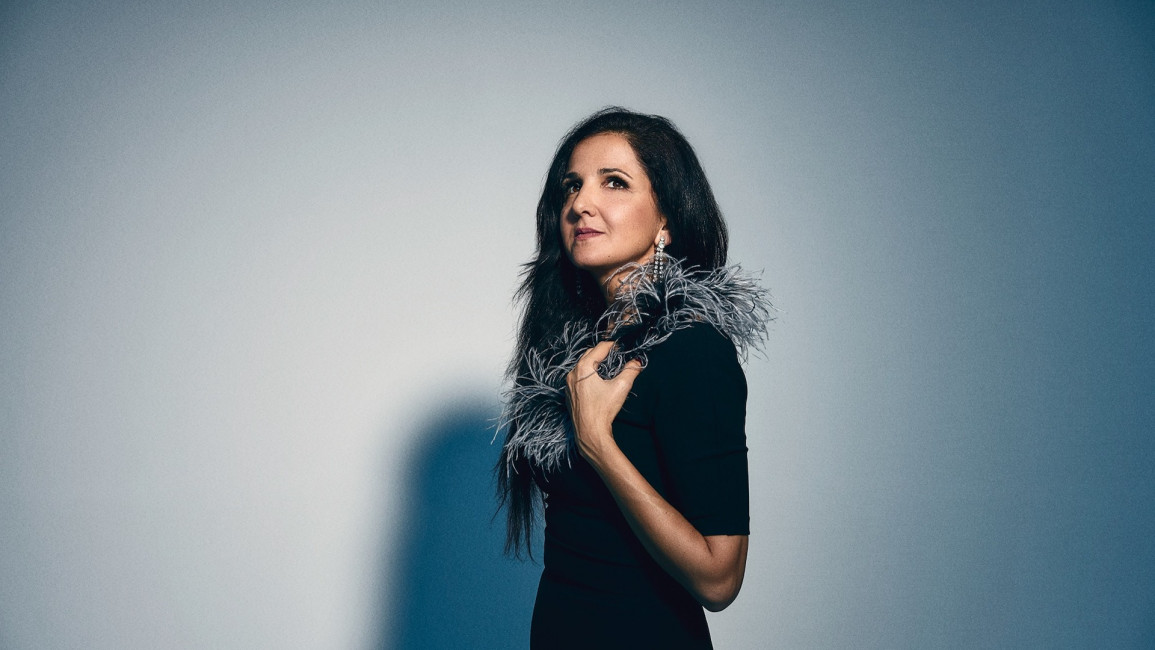'Wish I was black': Lebanese artist blasted for 'blackface' 'in solidarity' photo for George Floyd
Saleh said she posted the image in solidarity with "all races" after the killing of George Floyd, an African-American who was suffocated by a US cop despite pleading for his life saying "I can't breathe".
"I wish I was black, today more than ever," Saleh wrote in posts on Facebook, Twitter and Instagram on Monday.
"Sending my love and full support to the people who demand equality and justice for all races anywhere in the world," the Arab singer captioned the controversial photo.
When angered Lebanese and others who came across the post asked Saleh to take the photo down, explaining the history of so-called "blackface" images the singer refused to comply.
"I have not painted my face or dressed in a weird way," Saleh said, after saying in a comment that she photoshopped her face on a photo of a black woman she saw on Pinterest.
|
Through follow up comments and a later post, Saleh refused to acknowledge the post was harmful, even after receiving complaints from African and African-American Facebook users, who said they were offended by the image.
"You can stand with the movement without trying to look like us," Sam Sanchez wrote in a comment. "To wish to be black in this day and age is insensitive because being black is a death sentence."
Others joined in, accusing Saleh of fetishising black people by praising renowned black artists and expressing her desire to be black but failing to acknowledge their struggles, even in her own country, Lebanon.
"Black Face [is found] offensive when people do it out of mockery or for 'fun'. I did it out of love. I prefer not to be 'politically correct' than to hide my real feelings," Saleh said in response to the backlash.
One critic pointed that Saleh did not speak out against racism in Lebanon under its notorious 'kafala' system, where migrant domestic workers - the majority from Ethiopia - and subject to conditions which some activists say is tantamount to "modern day slavery".
Read more: Imprisoned, starved, abused: The plight of domestic workers in Lebanon
The system legally binds workers to their employer and contracts can only be terminated with the consent of employers, often requiring compensation as penalty, even in the case of abuse or non-payment of salary.
Earlier in the week, Tom W Hornig, a Beirut-based activist outspoken about racism in Lebanon compared the Kafala to racism in the US. Saleh described the comparison a unfair and far-fetched.
"Romanticising a harsh reality... through aesthetics and art is a bit too tone deaf, to say the least. Black face is definitely not the way to show support and solidarity," Hanine Sobh wrote.
This is Lebanon, an NGO founded by a former domestic worker who was employed in Lebanon, spoke out against the Kafala system in light of the US-originated Black Lives Matter movement that has reignited globally following Floyd's death.
"Do black lives matter in Lebanon? More than two domestic workers die every week. All Black and disposable," This is Lebanon wrote.
| Facebook Post |
Follow us on Facebook, Twitter and Instagram to stay connected



